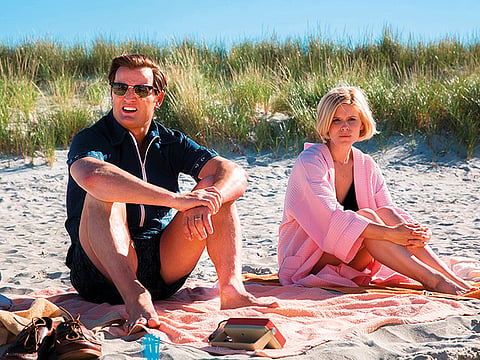‘Chappaquiddick’ review: Grim Kennedy scandal revisited
Directed by John Curran from a script by the first-timers Taylor Allen and Andrew Logan, the film forsakes sensationalism for sober, procedural storytelling

I admit that I approached Chappaquiddick with a measure of scepticism and a tremor of dread. The ongoing, morbid fascination with all things Kennedy is an aspect of American culture I find perplexing and somewhat dispiriting.
Compulsive Kennedyism encourages our unfortunate habit of substituting mythology for history, of dissolving the complexities of American political life into airy evocations of idealism and tragedy. The lives and deaths of Kennedy family members provide grist for endless conspiracy theorising, tabloid salaciousness, celebrity-worship and superstition.
Clancy Brown, Taylor Nichols and Victor Warren.
The test that Chappaquiddick sets for itself is not accuracy but plausibility. Whether or not events actually unfolded this way, the story the film tells is an interesting and complicated character study, with something to say about the corrosive effects of power and privilege on both the innocent and the guilty.
The villains in Chappaquiddick are Robert McNamara (Clancy Brown); Ted Sorensen (Taylor Nichols); and Ted Kennedy’s father, Joe (Bruce Dern), a fearsome patriarch even though he has been paralysed by a stroke. He humiliates his son and turns matters over to a squad of fixers in suits who manipulate the local authorities and the news media to protect
Ted Kennedy never became president, but the people of Massachusetts re-elected him to the Senate seven more times. His political career was longer and arguably more consequential than those of his brothers. That isn’t to say he redeemed himself, or that anything he accomplished diminishes the awfulness of Mary Jo Kopechne’s death. Redemption and damnation are the stuff of mythology. This is just a sad piece of history.
Check it out!
‘Chappaquiddick’ is screening now in the UAE
Sign up for the Daily Briefing
Get the latest news and updates straight to your inbox


